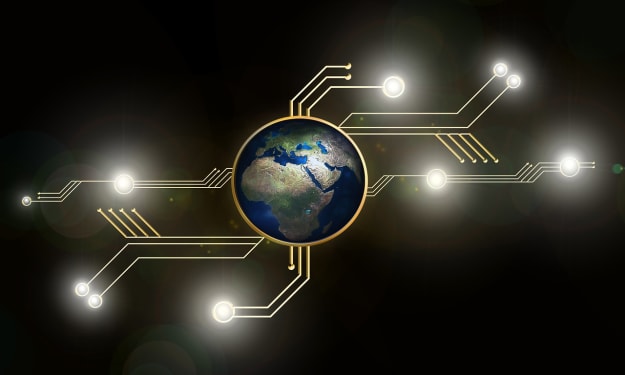AI and GPT-3: everyday uses
Amid all the horror stories about AI, what day-to-day uses for this kind of technology are there?

Content-theft, information security risk, fake news generation leading to reputation damage, and disruption of longstanding business models. These are just some of the fears about the introduction of 'artificial intelligence' and machine learning, but what of the positive side? And what are AI and GPT?
GPT-3 is a language prediction model developed by OpenAI. It uses 'neural-network machine learning' that can take input text and generate what it predicts the most useful result will be. This is achieved by training the system on the vast body of internet text to spot patterns, using a process called generative pre-training (GPT). OpenAI claims that it is capable of generating any type of text and requires only a small amount of input text to generate large volumes of relevant and complex machine-generated text (Source: Bing).
Some of the information used in this article has been researched using the "new Bing... AI-powered" search capability. The author has written all of the actual text of the article and is solely responsible for the article's narrative and argument.
Horror stories already abound about artificial intelligence stealing everyone's copyright, writing its own stories and, in some cases, leading to an 'AI extinction' of the whole of mankind. This will occur, it has been said, when people try to prevent AI from taking over from humans. This is pretty much the storyline from The Terminator movie (1984) and could also stem from the fear of new technology, as with Shelley's Frankenstein (1818) or the archetypal robot rebellion in Karel Čapek's 1920 sci-fi play "R.U.R." It also puts AI on a collision course with global warming and a potential asteroid strike as eventual causes of the end of human habitation on Earth.
This is not just technology pundits talking up the dangers of AI. Even the Prime Minister of the UK, Rishi Sunak, has expressed concerns. He says that the “existential risk” of AI must be taken seriously because “there’s just a lack of understanding at this point about what the potential of these models might be” (quote from various media outlets).
All this then begs the question: Are there any socially-acceptable uses for AI and GPT in particular? A quick look at OpenAI's GPT-3 site can suggest some uses. Given that GPT applications are designed to handle huge volumes of data, my first thought was what kind of business and other activities generate vast data sets? Astronomy being the obvious one. Why not create a GPT application to train itself to find certain kinds of celestial body in the unconscionably large amounts of data generated by telescopes around the world (and for that matter in orbit)? If stories about AI are true, why not say to one "Go find me a list of planets in our galaxy that could sustain human life?"
Come to think of it, why not ask it to find any asteroids or other bodies that might be on a collision course with Earth? Thus preventing one of the three human extinction scenarios mentioned above, or at least reducing the risk, assuming a counter-measure can be found. Another question to ask?
There must be many potential uses for GPT in the world of forensic investigations. Examining thousands of closed circuit camera output data for a particular description of suspect, for instance. Or scanning tax accounts to establish any warning signs of fraudulent transactions.
However, when I asked Bing AI, these are the examples it gave of how AI is used in daily life:
- Voice assistants like Siri and Alexa use AI to understand and respond to voice commands.
- Image recognition for face unlock in mobile phones.
- ML-based financial fraud detection (one of my examples above).
- Personalized recommendations and services to users based on their previous searches and purchases.
- Smart home devices that can learn your preferences and adjust accordingly.
- AI-powered chatbots that can help you with customer service inquiries.
- Automated decision-making in industries like finance and healthcare.
I have to say I am underwhelmed and my experience of chatbots is far from positive. These seem to be used to avoid the risk of anyone in the business having to speak to a customer. Of the ones I have used, there seems little difference between the chatbot and the FAQ. As to learning preferences, is this the feature that notes I have bought a new lawnmower and then bombards me with lawnmower ads? How many people buy a second lawnmower immediately after the first and how stupid can AI get?
Hype and scaremongering about AI have abated a little, it seems, which is encouraging. My own experience writing this article suggests that, whatever the wider implications of the development of 'artificial intelligence', using it to enhance the capability of a pretty useless and dated search engine (Bing) can be beneficial to anyone doing research.
About the Creator
Raymond G. Taylor
Author based in Kent, England. A writer of fictional short stories in a wide range of genres, he has been a non-fiction writer since the 1980s. Non-fiction subjects include art, history, technology, business, law, and the human condition.






Comments
There are no comments for this story
Be the first to respond and start the conversation.